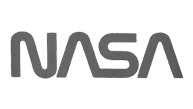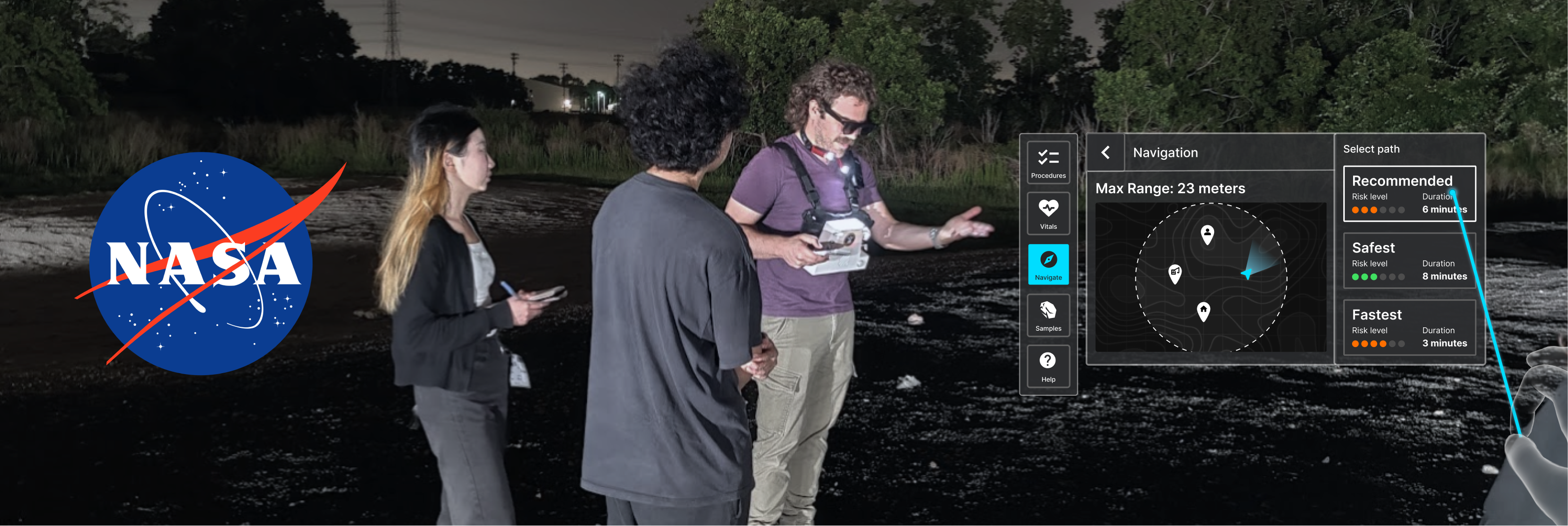2025 / DECISION SUPPORT TOOL
A spacesuit display to help astronauts make autonomous decisions on the moon

I designed and built a heads up display interface to support astronauts in operational procedures on the moon. Tested simulation with NASA engineers at the Johnson Space Center.
Role
- HCI Research
- Product Design
- XR Engineering
Duration
10 months
Team
- 2 Engineers
- 1 Designer
Results
- Presented to NASA review panel
- Top 10 Finalist

Supporting the Artemis mixed reality efforts
Americans have not sent astronauts on the moon since the 1960s. The next human space missions are scheduled to begin in 2027. I helped design and prototype a spacesuit interface to support human autonomy on these next series of space flights — procedural support, geological sampling, and adaptive navigation.
I presented these concepts to the Flight Director and Astronauts at the Johnson Space Center and conducted on-site stress tests with simulation and flight engineers at their Rock Yard facility.

Astronaut Deniz Burnham and Flight director pictured
Starting the first space hci research lab
I founded the first space hci research team at UC Irvine. We were invited to present our work to the dean of the CS school and were awarded $20,000 in research funding from the university.

Presenting to the Dean's Leadership Council at UC Irvine
Problem
Operations require direct support from ground stations on earth. They plan every step of the journey: timeline design to day-to-day tasks down to the minute. Brute-force simulations are run to uncover every edge case.
Sustained human presence on the moon demands autonomous human operations — this requires learnable interfaces that can anticipate what a user needs before they ask.
"Operators need the right data at the right time, with zero friction. If they can't find it instantly, they default to paper."
NASA Senior UX Designer at Ames
"The suit moves differently from natural human mobility. Every extra action is a cognitive burden."
Astronaut Trainee

Debriefing and testing with NASA engineers at the JSC Rockyard.